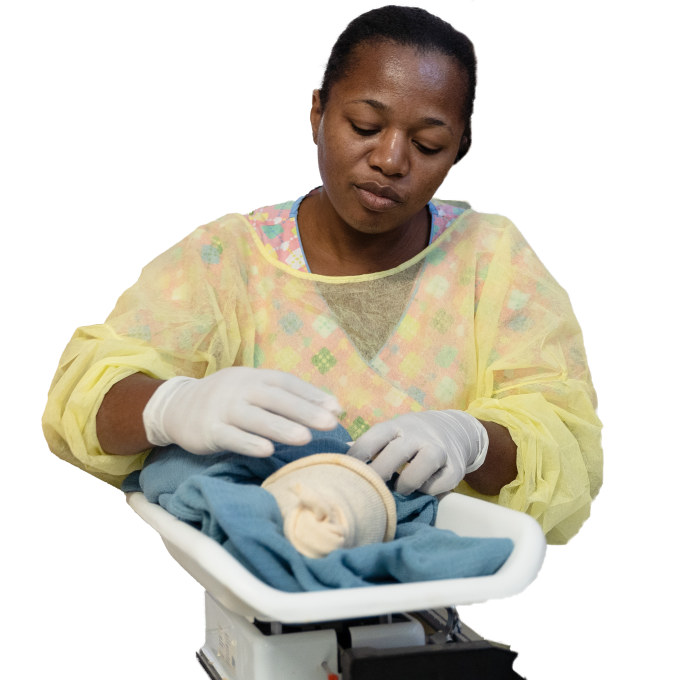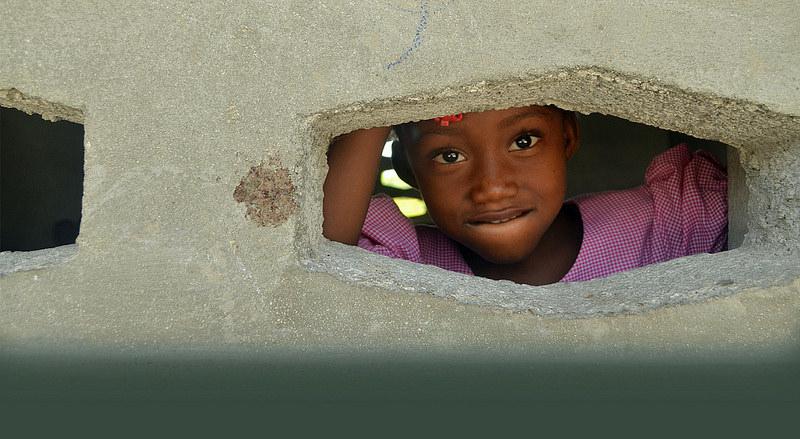“I never tire of providing care, so that mothers can experience the joy of holding a healthy baby again.”
Your donation will help Nurse Pascale save lives in our NICU.


This guest post comes from Benjamin Kaufman, a fourth year medical student at Boston University, who will begin his residency in Emergency Medicine at King’s County Hospital in New York City this July. He worked for two months in Haiti with SBH to improve the vaccination program at our hospital.
During my final year of medical school, I was lucky enough to spend two months in Fond des Blancs, Haiti. Prior to medical school, I had lived and worked with similar organizations in Mexico and Bolivia—experiences that had motivated me to enter the medical field. As a doctor planning a career in international health, I came to Haiti with an understanding of the difficult realities faced by SBH patients.
My specific project in Haiti was to improve the hospital’s vaccination program. In the public health sphere, no intervention besides clean drinking water is more beneficial than vaccines in reducing the burden of infectious disease. Since it costs a mere $10 to fully vaccinate a child, vaccines are something of a no-brainer. Sadly, only about half of Haiti’s children receive these life-saving vaccines—a painful statistic in a hospital like St. Boniface where doctors routinely treat children with tetanus, diphtheria and other preventable diseases rarely seen by US physicians.
My first week, I met the hospital’s community health workers and traveled with them on mobile clinics throughout Haiti’s Southern Plateau. We traversed unpaved roads for hours to arrive at remote villages on a motorcycle, in the back of pick up trucks or, for the rockiest paths, on foot. Here, we were greeted by the village’s community health worker who brought hundreds of children and adults for vaccinations, primary care visits, and treatment for a variety of acute issues ranging from benign fungal infections to life-threatening child malnutrition.
SBH has divided the hospital’s catchment area into fifty zones and has assigned a health worker from the community to each one. Every month, hospital providers travel to all the zones to provide vaccines, primary care, and health education. It is inspiring to see largely illiterate communities tell you of the importance of vaccines, hand washing, giving birth at a hospital and that illness is caused by viruses and bacteria. To say that SBH has a strong and dedicated public health program is an understatement.
The vaccination program visits each of these fifty zones to give appropriate vaccines and education to each child. These are recorded in a book kept in the village, but when I arrived there was no central record of vaccination status at the hospital. This led nurses to miscalculate which vaccines to bring from the hospital and community health workers to miscalculate which children to bring from the community. To address this, I worked with staff to create a database to track each child’s vaccines that automatically updated as a child became due for the next round. This way, community health workers and nurses will receive lists of vaccines and children for each monthly visit.
Though this database continues to be used and will certainly help staff to increase vaccination coverage, there still remains much work to ensure proper vaccination for the children of Haiti. At present, SBH staff can only afford vaccines for children under the age of one. In addition, funding prevents the full range of vaccines from being offered to children in the hospital’s catchment area. Each month, older unvaccinated children are denied life-saving vaccines due to funding gaps. Hopefully, the database will increase this funding through more transparent and specific reporting of numbers for grant writing (which often leads to grant money in the donor-driven world of international health). Certainly, the children of Haiti deserve a better response from the international community.
In the future, I hope to continue to work with SBH and similar organizations addressing the health consequences that come from income disparity. UNICEF estimates that 22,000 children die each day due to poverty, noting they “die quietly in some of the poorest villages on earth, far removed from the scrutiny and the conscience of the world. Being meek and weak in life makes those dying multitudes even more invisible in death.”[1]Certainly we can and should continue to do more in our own lives to give a voice to those born without one.
[1] Shah, Anup. “Today, around 21,000 Children Died around the World.” Global Issues. 24 Sept. 2011. Web. 20 May 2014.
Your donation will help Nurse Pascale save lives in our NICU.
